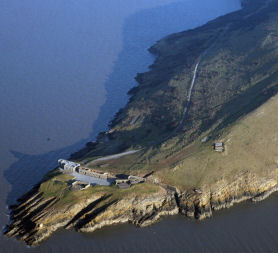Severn Barrage scrapped in Coalition energy plan
A 10-mile-long barrage across the Severn Estuary to generate tidal power is to be scrapped as part of the Coalition’s first major policy plan on powering Britain to 2025 and beyond, writes Tom Clarke.

A feasibility study commissioned by the government found that the scheme could cost £34 billion, double its initial projected costs.
“The study clearly shows that there is no strategic case at this time for public funding of a scheme to generate energy in the Severn estuary. Other low carbon options represent a better deal for taxpayers and consumers,” said the Energy Secretary, Chris Huhne.
“Harnessing the huge tidal power of the Severn has to be right, but it cannot be right to trash the natural environment in the process.” Martin Harper RSPB
The barrage, had the potential to generate 5 per cent of the UK’s electricity needs – nearly enough for all the homes in Wales. It would have worked by exploiting the huge tidal reach of the estuary – at 14 metres the difference between high and low tides in the Severn is the second highest in the world.
Environmental opposition
In addition to cost, the scheme faced strong opposition from wildlife campaigners. The proposed barrage which completely spanned the estuary from Weston-super-Mare to Cardiff would, they argued, have had an irreversible impact on wildlife in the Severn Estuary.
“Climate change threatens an environmental catastrophe for humans and wildlife,” said Martin Harper from the RSPB. “Harnessing the huge tidal power of the Severn has to be right, but it cannot be right to trash the natural environment in the process.”
Despite support for other smaller-scale tidal schemes on the Estuary, the feasibility study concluded none would provide sufficient amounts of electricity to be cost effective for tax-payer investment in the long-term.
Mr Huhne said other options including wind energy and nuclear power would provide a better return for taxpayers.
Nuclear sites
As part of a raft of announcements on future energy policy, he revealed the sites of Britain’s new nuclear power plants. All of them are places where there are existing nuclear plants. Three sites on the original short-list – Braystones and Kirkstanton in Cumbria and Dungeness in Kent – were ruled out.
“We’re not in the business of taking a public position in the energy sector.” Energy Secretary Chris Huhne
The pre-approval of sites suitable for new nuclear plants removes much of the need for planning consent in future – boosting the attractiveness of Britain for nuclear power companies. There were also guarantees from the government on how the eight new plants would be built without direct government subsidy or liability for future nuclear waste falling on the taxpayer.
“The market needs certainty to make this investment happen and we are determined to clear every obstacle in the way of this programme,” said Chris Huhne.
“I am making it clear that new nuclear will be free to contribute as much as possible with the onus on developers to pay for the clean-up.”
‘Welcome clarity’
Keith Parker, chief executive of the Nuclear Industry Association said: “Our member companies are preparing to invest billions of pounds in the UK’s energy infrastructure and we welcome this added clarity from Government. New nuclear build will be one of the biggest programmes of private infrastructure investment which this country has ever seen.
“These positive moves from government – coupled with a maintained forward progress – will reassure those investors that the political framework is sufficiently stable to allow that commitment to be made.”
The government is under pressure to meet tough targets on renewable energy – 20 per cent of the total coming from renewable sources by 2020.
Renewable energy
However, despite scrapping the Severn Barrage today, there was no clear detail on how the government planned to boost energy from renewable sources.
“If the government is to stick to its claim of being the ‘greenest government’ ever it must show it can truly commit to finding and delivering sustainable marine renewable options to contribute to meeting UK renewable energy targets,” said Emmalene Gottwald of WWF-UK.
Later this year the government is expected to produce a plan for the overhaul of the UK electricity market, which favours renewable energy generation. But, in a change of tone to the previous government, the emphasis is now on requiring that private sector investment deliver changes.
“We’re not in the business of taking a public position in the energy sector,” said Mr Huhne. “Nor are we about to see a return of the Central Electricity Generating Board.”